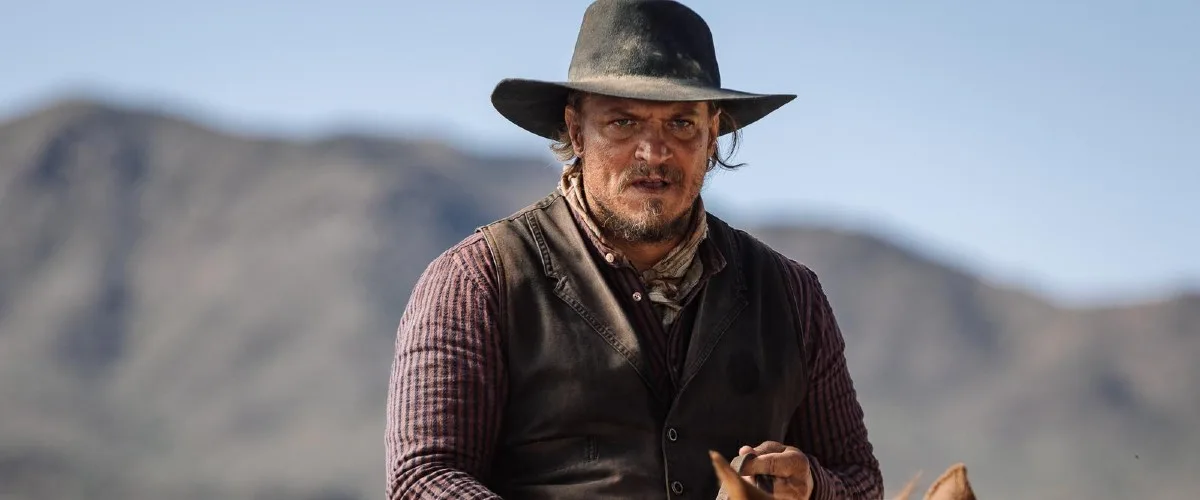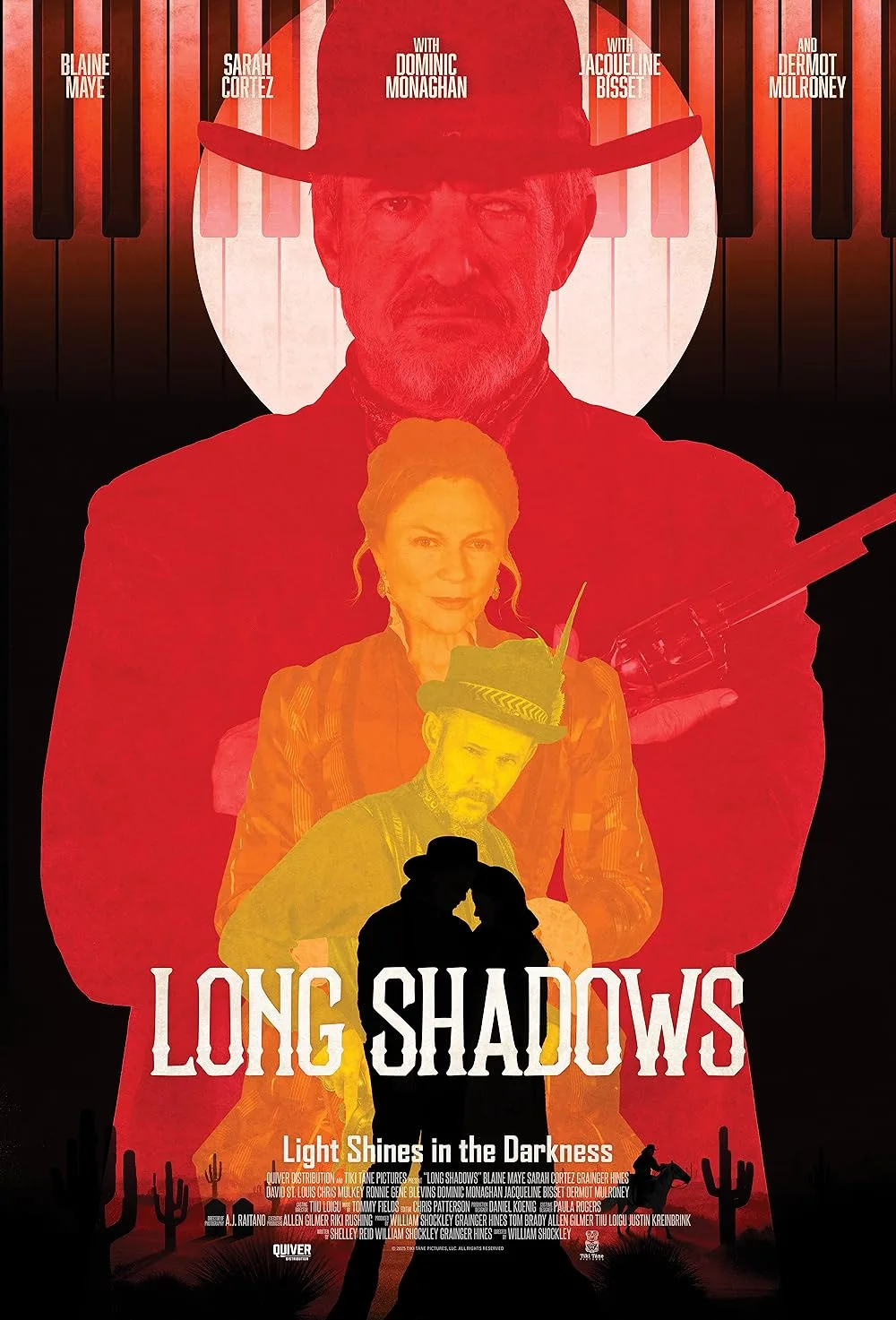There’s a version of “Long Shadows,” a poorly directed, confusingly conceived Western by William Shockley, that might actually make for an intense psychological character study. But with a bait-and-switch approach, whose ultimate deployment feels wholly unearned, the film takes viewers on a long, winding, and emotionally inept journey.
The 1890s-set Western begins with the image of an injured child, Marcus, before briskly speeding ahead by over a decade. An adult Marcus (Blaine Maye) has left the mission orphanage he’s called home since the murder of his mother and father by the Warren gang. Naive and innocent, he wanders into Tucson in search of a horse. Instead, he meets Vivian Villerè (Jacqueline Bisset), a conniving brothel owner who matches him with Dulce (Sarah Cortez), an aspiring concert pianist held captive by Vivian as a sex worker. Rather than sleep with Dulce, Marcus buys a cheap mule and escapes with her, delivering Dulce back home to her sister before departing to his parents’ former abode.
That simple, classic set-up should be enough to propel “Long Shadows” forward. But a discontented Shockley, who co-wrote the script with Grainger Hines and Shelley Reid, decides to add more. At his family home, Marcus gains a kind of father figure in former bank robber Dallas Garrett (Dermot Mulroney), whose gun training gives Marcus the confidence to hunt down and kill the Warner gang. There’s also the re-emergence of Marcus’s childhood friend, the bubbling up of a seedy scheme by Vivian and her partner Ned (Dominic Monaghan), and the sadness of a grief-stricken sheriff (Grainger Hines) to fill out the story further. And while there is a narrative reason for this being a jumbled ensemble in what’s meant to be a psychological study of Marcus, knowing the motivation doesn’t make the endurance required to watch it entertaining or worthwhile.
A similar critique could also be laid at the film’s gratuitous flashbacks. I’m not sure five minutes pass without the film jolting itself back into the past. Once again, later on in “Long Shadows,” we discover the reason behind this jagged temporal movement. But because it occurs at the end, seemingly to tie up loose ends, the reveal doesn’t invite empathy, sorrow, or even surprise. It instead evinces a labored groan to know these writers would be so shortsighted as to believe they could use a real, tragic piece of history to give their overloaded genre film some deeper meaning.
Granted, maybe I would be less harsh about this film’s morally incoherent script if it had some aesthetically pleasing execution. But outside of the flowery production design, whose florid look never translates to the harsh tone of the movie we’re watching, it doesn’t. Cavernous wide shots, indiscriminate canted angles, and head-scratching inserts litter “Long Shadows.” Could this be because the visual language is trying to match the psychology of our protagonist? Possibly. It’s a failure of the film, however, that I couldn’t fathom these decisions to be by design. These moments rarely occur in Marcus’s presence; they’re happening in the indulgent side plots that take up far too much of the runtime, making it hard not to believe that we’re witnessing an amateurish spectacle that looks like it’s been shot by a person who’s never watched a film before.
If you’re looking for the cast to grant some respite from the mind-boggling visual language, you’re not going to find it. Now, to be fair, they’re saddled with some horrid, cliche dialogue—but these actors aren’t capable of rising above it either. Cortez often plays her wide-eyed character with maudlin intensity, reaching for melodramatic screams and flights of affection with the subtlety of a stampede. Maye, our lead, always has the expression of an egg and bacon smiley face left out for weeks in the Arizona sun. They’re all the result of a film whose lack of precision can even be seen during a throwaway moment when a character presents a wanted poster that appears to have been printed on contemporary paper stock. Yes, that’s how bad this film is: I noticed the paper stock.
It’s not all unwatchable. There’s a pulsating horse chase between Marcus and the sheriff’s posse that displays the agility and nimbleness necessary for such scenes. Bisset is also trying to make cabins out of the film’s Lincoln-logs dialogue. But for the most part, “Long Shadows” is short on reasons to have our attention.




















